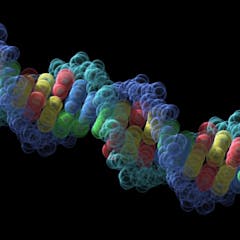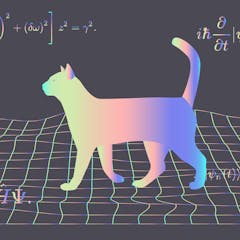
Articles on Quantum
Displaying all articles

Quantum machine learning models could help us create AI systems that are almost impenetrable by hackers. But in the hands of hackers, the same technology could wreak havoc.

Studying the brief and tiny quantum effects that drive living systems could one day lead to new approaches to treatments and technologies.

So far researchers have only been able to control a handful of qubits — the basic units of information in a quantum computer. A new approach could help them control millions at a time.

Einstein was awarded a Nobel prize for his explanation for how light can be described as being made up of individual particles of energy under certain conditions.

We identify an experimental method which could finally reveal whether objects much larger than atoms - such as humans or animals - can exist in several places at once.

Computers were once considered high-end technology, only accessible to scientists and trained professionals. Today, almost everyone has one. Will quantum computing follow the same path?

It is hard to predict when quantum computers will be strong and fast enough to crack the codes that keep bitcoin safe. But that day is coming.

The explainer episode
The Conversation, CC BY67.5 MB (download)
Today on Trust me, I'm An Expert, we're explaining the tricky topics: what is quantum mechanics? What does the research say about lone actor terrorism? And why do people like pimple popping videos?

If an alien landed on Earth, how would you decide if it had free will like us, or was a sophisticated automaton?

China has upped its defence spending and is investing heavily in revolutionary technologies that could transform its military into the world’s most powerful force by the middle of the century.

As companies make quantum computers available through their cloud services, take a look at what it means for computing to move beyond classical mechanics and into quantum physics.

Four decades later, I find myself surveying 13 billion years of cosmic history and mapping events that really did happen a long time ago in galaxies far, far away.

How do we know that a measure of something in one location can be replicated precisely in another. We already have a universal measure of mass and time, but what about temperture?

There will be a quantum leap in securing online confidentiality with key distribution technology.

Take the screen on which you are reading this article. When you look at it, you see one complete scene, but you know that this scene is composed of millions of pixels that only come in three colours: red…
A team of researchers have determined a new way to distinguish quantum bits in the eventual creation of a quantum computer…

This might surprise you, but there may be literally thousands, or even tens of thousands, of devices and components surrounding you right now that work because of our understanding of quantum physics…
